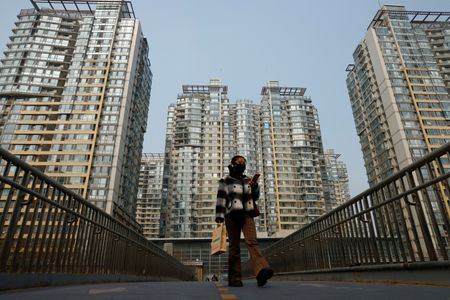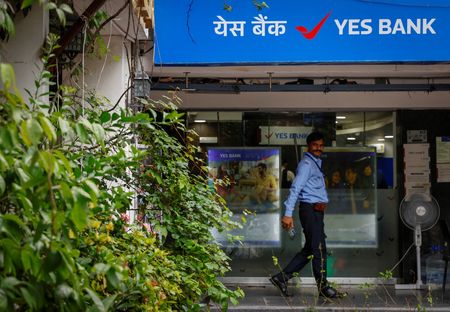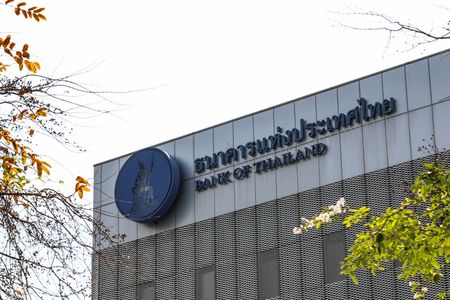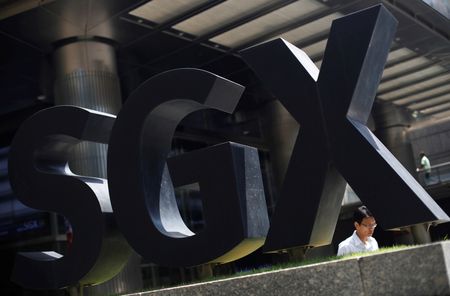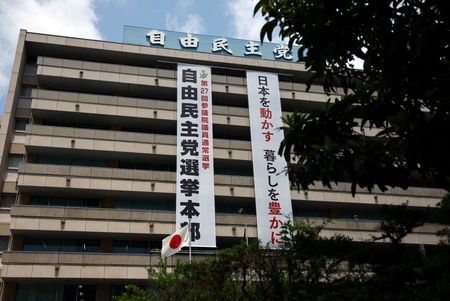By Liangping Gao, Yukun Zhang and Ryan Woo
BEIJING (Reuters) -China’s new home prices fell at the fastest monthly pace in eight months in June, highlighting the struggle to revive demand despite repeated policy measures and growing calls for additional support.
The 0.3% month-on-month drop, calculated by Reuters based on data released by the National Bureau of Statistics, extended a weak trend that has persisted since May 2023. Prices fell 0.2% on month in May.
On an annual basis, new home prices in June declined 3.2%, versus a 3.5% drop in May.
The property sector, which accounted for about a quarter of economic activity prior to its meltdown roughly four years ago, remains a heavy drag on economic growth. That has complicated policymakers’ efforts to achieve a target of “around 5%” GDP growth amid factory-gate deflation, subdued consumer demand and geopolitical tensions with the United States.
The peak season for home purchases in China is around March and April.
The post-peak slowdown has revealed fresh market vulnerabilities, stemming from policy impacts, demand fluctuations, regional disparities and weakened confidence, said Zhang Dawei, chief analyst at Centaline Property Agency, who stressed the need for additional supportive measures.
Prices of resale homes across all city tiers fell both year-on-year and month-on-month, the data showed.
Separate NBS data on Tuesday showed property investment slumped 11.2% year-on-year in the first six months, worsening from the previous month, while sales by floor area fell 3.5%. New construction starts fell 20% in the first half from the same period a year earlier.
“Policies are expected to remain focused on the demand side, such as easing home purchase restrictions and reducing transaction taxes and fees,” said Xu Tianchen, senior economist at the Economist Intelligence Unit.
As of midday on Tuesday, the Hang Seng Mainland Properties Index and the CSI 300 Real Estate Index fell around 1.8% and 2%, respectively.
Current measures to support the sector include enabling debt-laden developers to sell housing inventories and undeveloped land to local governments, promoting urban village redevelopment, and reducing mortgage rates and down-payment requirements to stimulate demand.
Cities across the country have also relaxed homebuying curbs and eased restrictions on housing provident fund programmes for individual mortgages.
The State Council, China’s cabinet, pledged in a meeting on June 13 to conduct a nationwide survey of land for development and property projects under construction to enhance policy effectiveness.
China Vanke, a state-backed property developer facing liquidity pressures, forecasts a wider net loss of up to 12 billion yuan ($1.67 billion) for the first six months, citing a sharp drop in project settlements, low profit margins and extra provisions.
“As the property market searches for a bottom, we expect it to remain polarised between top and low-tier cities, luxury and mass segments, and state and privately-owned enterprises,” J.P. Morgan said in a research note on Monday.
(Reporting by Liangping Gao, Yukun Zhang and Ryan Woo; Editing by Jacqueline Wong)

